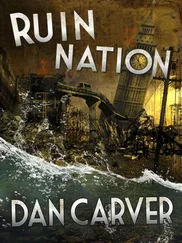Dan Singer - Start-up Nation
Здесь есть возможность читать онлайн «Dan Singer - Start-up Nation» весь текст электронной книги совершенно бесплатно (целиком полную версию без сокращений). В некоторых случаях можно слушать аудио, скачать через торрент в формате fb2 и присутствует краткое содержание. Жанр: Старинная литература, на английском языке. Описание произведения, (предисловие) а так же отзывы посетителей доступны на портале библиотеки ЛибКат.
- Название:Start-up Nation
- Автор:
- Жанр:
- Год:неизвестен
- ISBN:нет данных
- Рейтинг книги:3.5 / 5. Голосов: 2
-
Избранное:Добавить в избранное
- Отзывы:
-
Ваша оценка:
- 80
- 1
- 2
- 3
- 4
- 5
Start-up Nation: краткое содержание, описание и аннотация
Предлагаем к чтению аннотацию, описание, краткое содержание или предисловие (зависит от того, что написал сам автор книги «Start-up Nation»). Если вы не нашли необходимую информацию о книге — напишите в комментариях, мы постараемся отыскать её.
Start-up Nation — читать онлайн бесплатно полную книгу (весь текст) целиком
Ниже представлен текст книги, разбитый по страницам. Система сохранения места последней прочитанной страницы, позволяет с удобством читать онлайн бесплатно книгу «Start-up Nation», без необходимости каждый раз заново искать на чём Вы остановились. Поставьте закладку, и сможете в любой момент перейти на страницу, на которой закончили чтение.
Интервал:
Закладка:
This is evident even in popular forms of address in Israel. Jon Medved, an entrepreneur and venture capital investor in Israel, likes to cite what he calls the “nickname barometer”: “You can tell a lot about a society based on how [its members] refer to their elites. Israel is the only place in the world where everybody in a position of power—including prime ministers and army generals—has a nickname used by all, including the masses.”
Israel’s current and former prime ministers Benjamin Netanyahu and Ariel Sharon are “Bibi” and “Arik.” A former Labor Party leader is Binyamin “Füad” Ben-Eliezer. A recent Israel Defense Forces (IDF) chief of staff is Moshe “Bogey” Yaalon. In the 1980s, the legendary IDF chief was Moshe “Moshe VeHetzi” (Moshe-and-a-Half) Levi—he was six foot six. Other former IDF chiefs in Israeli history were Rehavam “Gandhi” Zeevi, David “Dado” Elazar, and Rafael “Raful” Eitan. The Shinui Party founder was Yosef “Tommy” Lapid. A top minister in successive Israeli governments is Isaac “Bugie” Herzog. These nicknames are used not behind the officials’ backs but, rather, openly, and by everyone. This, Medved argues, is representative of Israel’s level of informality.
Israeli attitude and informality flow also from a cultural tolerance for what some Israelis call “constructive failures” or “intelligent failures.” Most local investors believe that without tolerating a large number of these failures, it is impossible to achieve true innovation. In the Israeli military, there is a tendency to treat all performance—both successful and unsuccessful—in training and simulations, and sometimes even in battle, as value-neutral. So long as the risk was taken intelligently, and not recklessly, there is something to be learned.
As Harvard Business School professor Loren Gary says, it is critical to distinguish between “a well-planned experiment and a roulette wheel.” 3In Israel, this distinction is established early on in military training. “We don’t cheerlead you excessively for a good performance, and we don’t finish you off permanently for a bad performance,” one air force trainer told us. 4
Indeed, a 2006 Harvard University study shows that entrepreneurs who have failed in their previous enterprise have an almost one-in-five chance of success in their next start-up, which is a higher success rate than that for first-time entrepreneurs and not far below that of entrepreneurs who have had a prior success. 5
In The Geography of Bliss , author Eric Weiner describes another country with a high tolerance for failure as “a nation of born-agains, though not in a religious sense.” 6This is certainly true for Israeli laws regarding bankruptcy and new company formation, which make it the easiest place in the Middle East—and one of the easiest in the world—to birth a new company, even if your last one went bankrupt. But this also contributes to a sense that Israelis are always hustling, pushing, and looking for the next opportunity.
Newcomers to Israel often find its people rude. Israelis will unabashedly ask people they barely know how old they are or how much their apartment or car cost; they’ll even tell new parents—often complete strangers on the sidewalk or in a grocery store—that they are not dressing their children appropriately for the weather. What is said about Jews—two Jews, three opinions—is certainly true of Israelis. People who don’t like this sort of frankness can be turned off by Israel, but others find it refreshing, and honest.
“We did it the Israeli way; we argued our case to death.” 7That’s how Shmuel “Mooly” Eden (he has a nickname, too) glibly sums up a historic showdown between Intel’s top executives in Santa Clara and its Israeli team. It, too, was a case study in chutzpah .
The survival of Intel would turn on the outcome. But this fierce, months-long dispute was about more than just Intel; it would determine whether the ubiquitous laptop computer—so much taken for granted today—would ever exist.
Eden is a leader of Intel’s Israeli operation—the largest private-sector employer in the country—which today exports $1.53 billion annually. 8He told us the story of Intel in Israel, and Intel’s battles with Israel.
Throughout most of the history of modern computing, the speed of data processing—how much time it takes your computer to do anything—was determined by the speed of a chip’s transistors. The transistors flipped on and off, and the order in which they did so produced a code, much like letters are used to make words. Together, millions of flips could record and manipulate data in endless ways. The faster the transistors could be made to flip on and off (the transistor’s “clock speed”), the more powerful the software they could run, transforming computers from glorified calculators to multimedia entertainment and enterprise machines.
But until the 1970s, computers were used predominantly by rocket scientists and big universities. Some computers took up whole rooms or even buildings. The idea of a computer on your office desk or in your home was the stuff of science fiction. All that began to change in 1980, when Intel’s Haifa team designed the 8088 chip, whose transistors could flip almost five million times per second (4.77 megahertz), and were small enough to allow for the creation of computers that would fit in homes and offices.
IBM chose Israel’s 8088 chip as the brains for its first “personal computer,” or PC, launching a new era of computing. It was also a major breakthrough for Intel. According to journalist Michael Malone, “With the IBM contract, Intel won the microprocessor wars.” 9
From then on, computing technology continued to get smaller and faster. By 1986, Intel’s only foreign chip factory was producing the 386 chip. Built in Jerusalem, its processing speed was 33 megahertz. Though a small fraction of today’s chip speeds, Intel called it “blazing”—it was almost seven times faster than the 8088. The company was solidly on the path imagined by one of its founders, Gordon Moore, who predicted that the industry would shrink transistors to half their size every eighteen to twenty-four months, roughly doubling a chip’s processing speed. This constant halving was dubbed “Moore’s law,” and the chip industry was built around this challenge to deliver faster and faster chips. IBM, Wall Street, and the business press all caught on, too—clock speed and size was how they measured the value of new chips.
This was proceeding well until about 2000, when another factor came into the mix: power. Chips were getting smaller and faster, just as Moore had predicted. But as they did, they also used more power and generated more heat. Chips overheating would soon become a critical problem. The obvious solution was a fan, but, in the case of laptops, the fan needed to cool the chips would be much too big to fit inside. Industry experts dubbed this dead end the “power wall.”
Intel’s Israeli team was the first group within the company to see this coming. Many late nights at Intel’s Haifa facility were dedicated to hot coffee, cold takeout, and ad hoc brainstorming sessions about how to get around the power wall. The Israeli team was more focused than anyone on what the industry called “mobility”—designing chips for laptop computers and, eventually, for all sorts of mobile devices. Noticing this tendency, Intel put their Israeli branch in charge of building mobility chips for the whole company.
Even given this responsibility, Israelis still resisted fitting into the Intel mainstream. “The development group in Israel, even before it was tasked as the mobility group, pushed ideas for mobility that went against the common wisdom at Intel,” explained Intel Israel’s chief, David “Dadi” Perlmutter, a graduate of the Technion (Israel’s MIT) who’d started designing chips at Intel Israel in 1980. 10One of these unconventional ideas was a way to get around the power wall. Rony Friedman was one of Intel Israel’s top engineers at the time. Just for fun, he had been tinkering with a way to produce low-power chips, which went blatantly against the prevailing orthodoxy that the only way to make chips faster was to deliver more power to their transistors. This, he thought, was a bit like making cars go faster by revving their engines harder. There was definitely a connection between the speed of the engine and the speed of the car, but at some point the engine would go too fast, get too hot, and the car would have to slow down. 11
Читать дальшеИнтервал:
Закладка:
Похожие книги на «Start-up Nation»
Представляем Вашему вниманию похожие книги на «Start-up Nation» списком для выбора. Мы отобрали схожую по названию и смыслу литературу в надежде предоставить читателям больше вариантов отыскать новые, интересные, ещё непрочитанные произведения.
Обсуждение, отзывы о книге «Start-up Nation» и просто собственные мнения читателей. Оставьте ваши комментарии, напишите, что Вы думаете о произведении, его смысле или главных героях. Укажите что конкретно понравилось, а что нет, и почему Вы так считаете.












